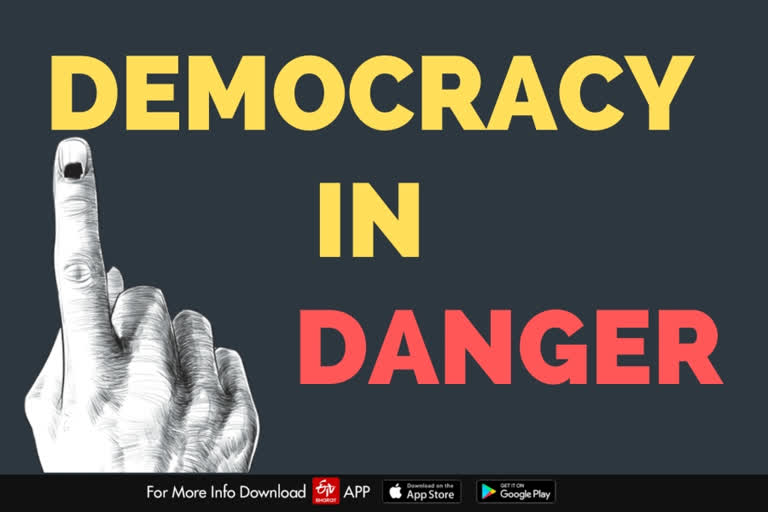Politics in India has long turned into a market where an election result carrying the public aspirations is turned on its head by those in "power" resorting to baiting legislators by offering them huge amounts of money. To a layman, especially to a voter who assumes his or her ballot is valued in a thriving democracy, this commodification amounts to political chicanery that is not only disheartening but also weakens the very system of empowerment.
Blowing democratically elected governments to smithereens by trying every trick in the book amounts to the uprooting of the foundations of democracy. Something similar was attempted in Telangana recently. Chief Minister KCR alleged that the BJP attempted to poach his party MLAs by offering them money and contracts. AAP chief Arvind Kejriwal also recently stated that his party MLAs too were baited by the BJP in Delhi and Punjab. It goes without saying that all political parties resort to blame games and assume a moral high ground. However, given an opportunity, they would all rush to prove the maxim 'politics makes strange bedfellows'.
Beginning with the ouster of EMS Namboodiripad-led Kerala government 60 years ago, the Congress demolished the opposition-led governments in several states. Indira Gandhi ousted the NTR government which had a full majority in 1984. Over a period of time, BJP has emerged as an invincible force due to its committed cadre and the organisational support from RSS.
Ever since attaining the peak position, its aggressive attempts to poach rival parties and demolish the opposition-led state governments to establish its own have been going on unabated. The Lotus bloomed in the waters of defection in Arunachal Pradesh, Madhya Pradesh, Manipur, Goa and Karnataka. The ruling party buried the coalition government of Shiv Sena, Congress and NCP in Maharashtra. The saffron party's tactics, however, are not surprising as any political outfit, in its heyday, looks for opportunities to bait leaders from other parties into their fold by hook or crook.
The cause of concern is when exceptions turn into a norm, when ruling parties start believing that they can pull the plug at any time and leave their rival parties in complete disarray. This politics of money and muscle has a direct bearing on democracy, obliterating it beyond any measure. “Never mind if people have not voted for us, we will buy the MLAs they have elected” seems to be the ultimate propensity of political parties.
This kind of attitude belies India’s stature as the largest democracy in the world. The erstwhile Prime Minister Atal Behari Vajpayee had advised political leaders not to pledge their souls to gain power. Contemporary politics has condescended to a situation where going astray to gain political power is not at all frowned upon. “Forty TMC MLAs are in touch with us. They will quit their party as soon as BJP wins the general elections...” were the words uttered by Prime Minister Narendra Modi at a West Bengal Public meeting about three years ago. What do they mean?
A transparently functioning government and an opposition that points out the flaws of the government are the two essential wheels of the chariot called democracy. Freedom of the press, which is so important for the protection of democracy, is also becoming the handmaiden of ruling parties. The prevailing atmosphere is not allowing people to express their dissent freely. Various institutions that are expected to function freely are also being overshadowed by politics. Institutions have become subservient to the ruling party. As the country writhes in this cesspool, the civil liberties of the people are also slowly eroding.
Is this the freedom envisaged by the founding fathers of the nation? This is something which all the political parties should ponder upon in this moment of Azadi Ka Amrit Mahotsav. It is time for constitutional bodies, intellectuals and the people to work towards establishing true democracy in the country.
(This piece was first published as an editorial in Eenadu)



